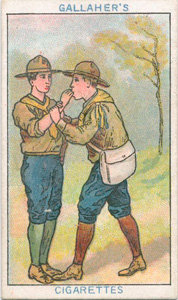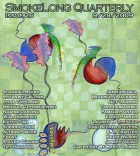Tell us a bit about the genesis of your piece, “The Guitarist.”
Love stories are among the most difficult to write. I’d been pondering that difficulty for years, trying to figure it out, and had finally come to the conclusion that it might have something to do with the enormous disparity of emotions involved. Strong relationships involve feelings that are perhaps too strong and too varied to describe in abstract terms, but I wanted somehow to capture, via experience, both the immense awe and the amazing simplicity of how relationships begin, right when they first start, regardless of how complex they might later become.
When we first fall for someone, I think, we all become somewhat emotionally naïve, but it’s that naïveté, at least in part, that makes us feel so wonderful in just those moments. We know, of course, that we may well be setting ourselves up for rejection or even eventual tragedy, but we do it anyway, and nothing less than the human race depends on that. I wanted to write a story about this ecstasy of hope, this denial of fate, this stubborn determination. If it weren’t for our relentless optimism, none of us would be here at all.
You use some great either/or questions to show us the narrator and Celia. What made you use this idea of asking questions in this piece?
Thanks! Good conversation is founded on good questions. So too, I think, is good fiction. I like the idea of a narrator who believes he might better understand another person via a series of random binaries, but whether she answers him or not seems less important to me. What matters is that questions are asked, that someone is sufficiently fascinated by another to really want to know these things about her.
Questions manifest the mystery that lives in any relationship, whether between an author and a reader or between two people in love. Mystery’s important to us all. It’s what makes us curious and draws us together, what makes us subjective beings and keeps us humble. It’s at the heart of all our fascination with the world.
What’s your writing process like when writing shorter pieces?
That’s a tough question, but I think my process involves a lot of reading and re-reading, over and over again. I do that with longer work too, but not to the same point of memorization that I do with flash fiction. If the climax of a story is the moment after which nothing will ever be the same, flash fiction only has time to engender a single thought or feeling that changes everything for its characters. I like to hold on to that thought or feeling in its entirety for a while, to really think it through and to understand its significance, before I’m finished editing. It can take time, but by the time a shorter story’s done, I don’t want to change a single word.
Do you, Will, play an instrument?
I played drums for years before I ever took up writing, and while I don’t play them as much today, I still listen to music religiously. I like to think that my background in music has affected my writing in a positive way. I love the music of language, the rhythms of human speech, and I often read books aloud (when no one else is around) just so I can hear what they sound like. My favorite authors, really, are also talented musicians, even if their music is made up of only words.
Name five CD’s you’ve listened to recently.
“Fondo” by Vieux Farka Touré—I like the sadness in his voice, even when I’ve got no clue what he’s saying.
“Sea Change” by Beck—My favorite of his albums. Sonically profound. These songs can be depressing, but they inspire me all the same.
“Concerto for Piano and Orchestra” by Aaron Copland, performed by the Utah Symphony Orchestra—Runs the aural gauntlet from simple to complex, all of it infused with grace.
“The Listening” by Little Brother—Spoken word as music, poetry against a wall of solid beats. It makes for great party music, too, which is always a good thing.
“Innervisions” by Stevie Wonder—Among the greatest soul albums ever produced. I’ve been listening to this one for years. It never gets old to me, and, I’m sure, it never will.



 The core workshop of SmokeLong Fitness is all in writing, so you can take part from anywhere at anytime. We are excited about creating a supportive, consistent and structured environment for flash writers to work on their craft in a community. We are thrilled and proud to say that our workshop participants have won, placed, or been listed in every major flash competition. Community works.
The core workshop of SmokeLong Fitness is all in writing, so you can take part from anywhere at anytime. We are excited about creating a supportive, consistent and structured environment for flash writers to work on their craft in a community. We are thrilled and proud to say that our workshop participants have won, placed, or been listed in every major flash competition. Community works.